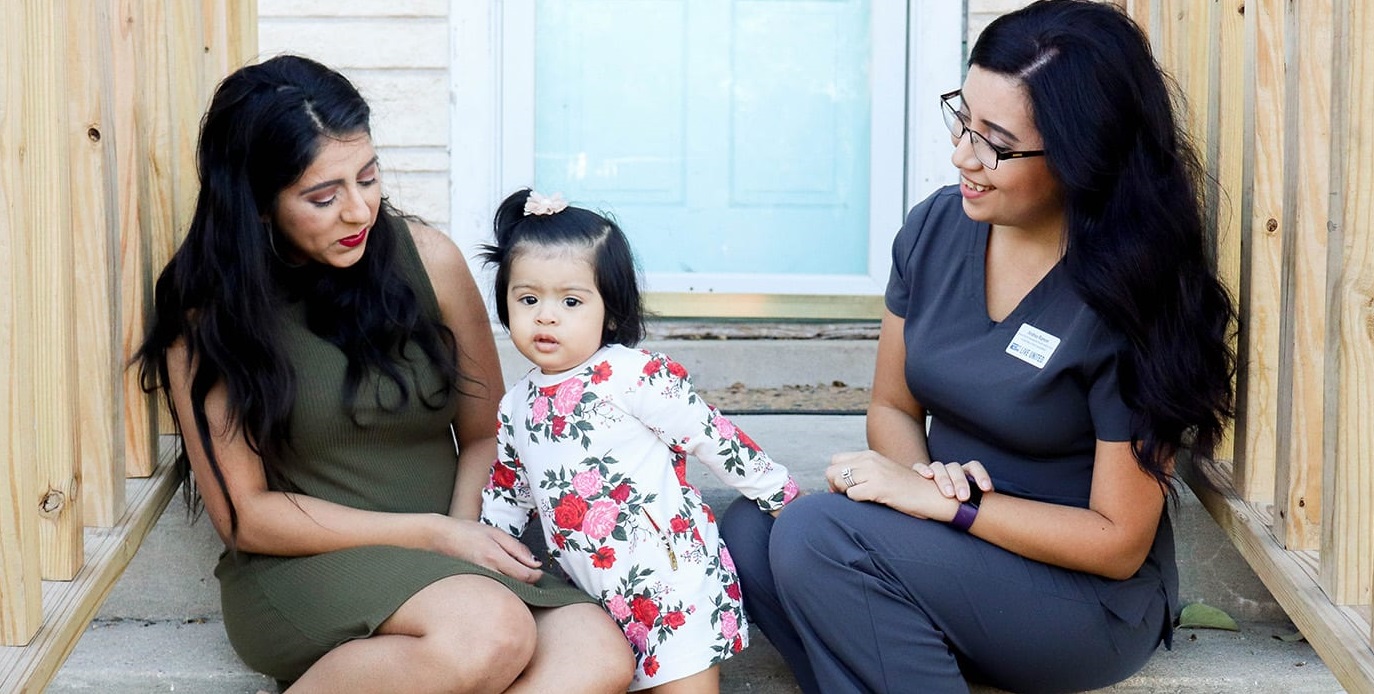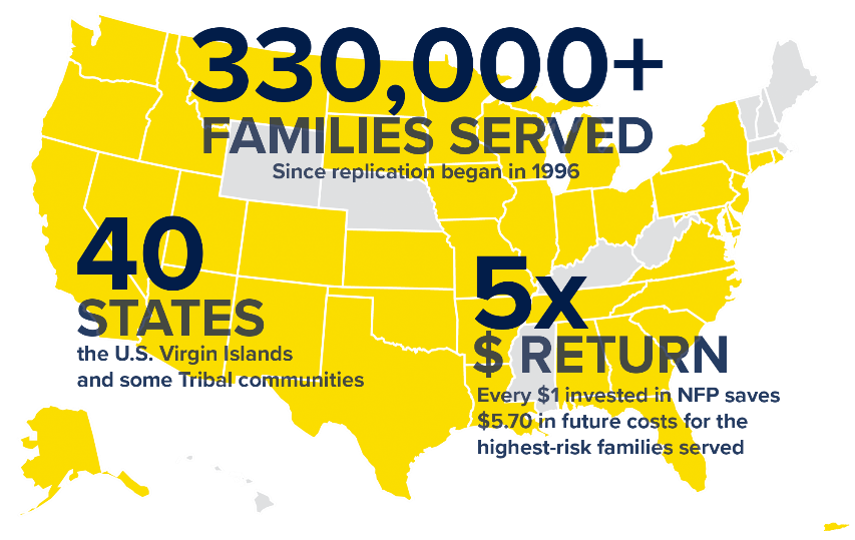
The Nurse-Family Partnership (NFP) is a national community health program that provides first-time moms with trusted support from registered nurses to build the lives they want for themselves and their children.
 Penn Medicine Lancaster General Health has been proud to collaborate with United Way of Lancaster County to implement NFP locally for the past 21 years. The goals of NFP directly align with the mission and vision of both organizations in advancing the health and well-being of the communities we serve.
Penn Medicine Lancaster General Health has been proud to collaborate with United Way of Lancaster County to implement NFP locally for the past 21 years. The goals of NFP directly align with the mission and vision of both organizations in advancing the health and well-being of the communities we serve.
NFP families are often affected by social and economic inequality. The specially trained nurses regularly visit the families throughout "the first 1,000 days," from pregnancy until the child’s second birthday.
NFP assists young families with making a long-lasting difference in the lives of both the parents and children. The program is free and voluntary for families that qualify. Each pregnant mother forms a trusted relationship with a personal nurse who works alongside them to accomplish goals and give their child a healthier start.
The nurse partners with each mother and promotes confidence to achieve health outcomes and better opportunities for both parent and baby. The nurse also encourages the mom to become economically self-sufficient by partnering to set goals to continue school and pursue career opportunities.

The program works! Forty-five years of evidence show that NFP improves birth outcomes, child development and school readiness, reduces child abuse and neglect, and juvenile crime, among other outcomes.
NFP makes a long-lasting difference in the lives of children and families. Communities are healthier and stronger for many generations. By strengthening families, NFP sparks multigenerational change and helps break cycles of poverty.
NFP data from a 15-year follow-up study in Elmira, N.Y., showed positive effects for nurse-visited families more than 12 years after the visits ended. In addition, the following outcomes have been observed among participants in at least one of the three randomized controlled trials:
- 48% reduction in child abuse and neglect
- 59% reduction in arrests among children
- 72% fewer convictions of mothers
- 56% reduction in emergency room visits for accidents and poisonings
- 67% reduction in behavioral and intellectual problems among children at age 6
This year, Gov. Tom Wolf's proposed budget included an additional $15 million to support evidence-based home visiting in the state. The increase would go toward the Community-Based Family Centers line item in the Department of Human Services budget.
Lancaster’s NFP program has learned from the department that without these additional dollars, our program as well as other NFP programs in Pennsylvania may no longer be able to continue serving the most vulnerable members of our community.
What does that mean? Without the additional $15 million, many families currently enrolled will lose services; low-income expectant mothers and families with children under age 2 who have been supported by a specially trained nurse will lose that support; and other families will not have the opportunity to receive such support in the future. The current funding will end in July.
Conversely, the additional funding will allow NFP and other evidence-based home visiting models to continue to provide life-changing services to families across the Commonwealth.
As the NFP program administrator in Lancaster County, I ask that you join me in reaching out to our Pennsylvania state and local legislators to ensure NFP and home visiting services are prioritized in the state's budget.
The families that evidence-based home visiting supports are among the most at-risk in our community. Legislators are currently negotiating what line-items will be included and it is vital that they hear now from constituents about supporting this funding.
Please reach out by phone to your local legislators or use this link to send them a message through NFP's online Voter Voice Action Alert system.
We are fortunate to have tremendous support from our community partners, our community advisory board, referring physicians, and social service agencies. Thank you for helping us preserve this vital program in Lancaster!





